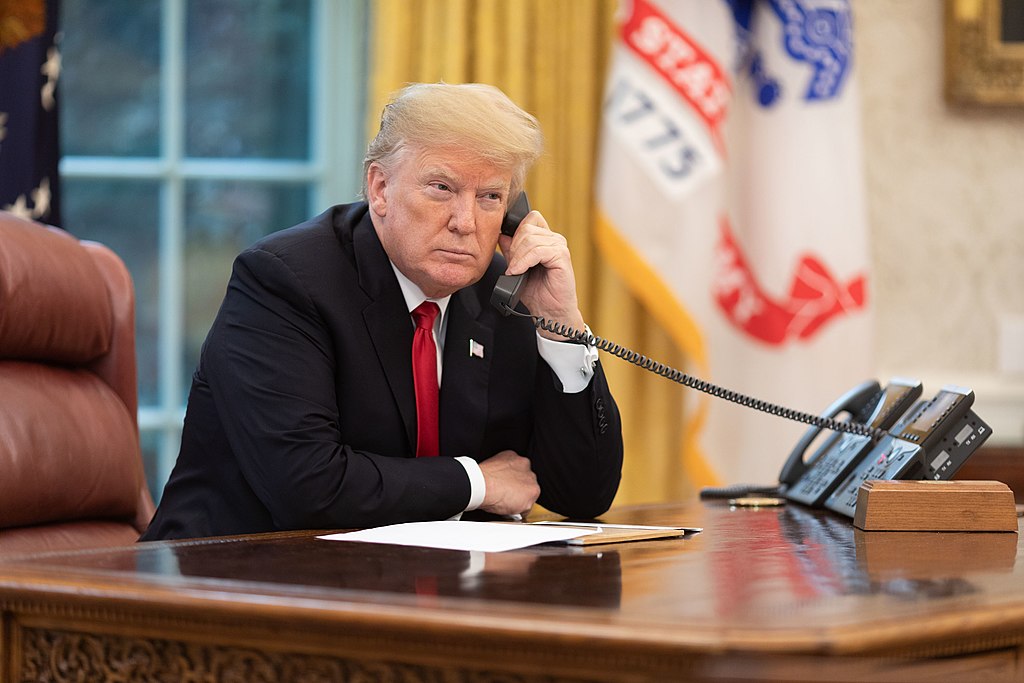U.S. President Donald Trump signaled a more flexible stance on trade tariffs in a recent interview with Newsmax, ahead of the planned April 2 rollout of new reciprocal tariffs. While reaffirming his commitment to correcting trade imbalances, Trump noted he was open to “limited exceptions,” saying he didn’t want to be “too tough” on trading partners. “I’ll probably be more lenient than reciprocal,” he told host Greg Kelly, emphasizing that strict reciprocity would be "very tough for people."
The upcoming tariffs are expected to target around 15 countries and will focus on key sectors, including automobiles, semiconductors, and critical commodities. Trump’s plan has stirred market volatility in recent weeks, though signs of recovery appeared this week as traders began pricing in potential exemptions.
In the same interview, Trump addressed concerns over a security mishap involving a Signal messaging group where Jeffrey Goldberg, editor-in-chief of The Atlantic, was mistakenly added. The group reportedly discussed a U.S. strike on Yemen’s Houthi rebels earlier this month. Trump claimed the chat wasn’t classified and insisted no sensitive information was leaked. “I’m very comfortable with the resolution,” he said.
White House National Security Adviser Mike Waltz, believed to have added Goldberg, took full responsibility for the incident. Despite mounting calls for resignations, Trump expressed support for Waltz and Defense Secretary Pete Hegseth. The Senate has since questioned top officials, including National Intelligence Director Tulsi Gabbard, CIA Director John Ratcliffe, and FBI Director Kash Patel, over the breach.
Trump praised the Yemen strike as a “tremendous success,” reinforcing his administration’s assertive foreign policy stance. With April 2 approaching, markets remain watchful of Trump’s tariff decisions and their potential global impact.



 TrumpRx.gov Highlights GLP-1 Drug Discounts but Offers Limited Savings for Most Americans
TrumpRx.gov Highlights GLP-1 Drug Discounts but Offers Limited Savings for Most Americans  Trump Allegedly Sought Airport, Penn Station Renaming in Exchange for Hudson River Tunnel Funding
Trump Allegedly Sought Airport, Penn Station Renaming in Exchange for Hudson River Tunnel Funding  India–U.S. Interim Trade Pact Cuts Auto Tariffs but Leaves Tesla Out
India–U.S. Interim Trade Pact Cuts Auto Tariffs but Leaves Tesla Out  New York Legalizes Medical Aid in Dying for Terminally Ill Patients
New York Legalizes Medical Aid in Dying for Terminally Ill Patients  TrumpRx Website Launches to Offer Discounted Prescription Drugs for Cash-Paying Americans
TrumpRx Website Launches to Offer Discounted Prescription Drugs for Cash-Paying Americans  U.S. to Begin Paying UN Dues as Financial Crisis Spurs Push for Reforms
U.S. to Begin Paying UN Dues as Financial Crisis Spurs Push for Reforms  Trump Endorses Japan’s Sanae Takaichi Ahead of Crucial Election Amid Market and China Tensions
Trump Endorses Japan’s Sanae Takaichi Ahead of Crucial Election Amid Market and China Tensions  Trump Backs Nexstar–Tegna Merger Amid Shifting U.S. Media Landscape
Trump Backs Nexstar–Tegna Merger Amid Shifting U.S. Media Landscape  China Warns US Arms Sales to Taiwan Could Disrupt Trump’s Planned Visit
China Warns US Arms Sales to Taiwan Could Disrupt Trump’s Planned Visit  US Pushes Ukraine-Russia Peace Talks Before Summer Amid Escalating Attacks
US Pushes Ukraine-Russia Peace Talks Before Summer Amid Escalating Attacks  Japan Election 2026: Sanae Takaichi Poised for Landslide Win Despite Record Snowfall
Japan Election 2026: Sanae Takaichi Poised for Landslide Win Despite Record Snowfall  U.S. Announces Additional $6 Million in Humanitarian Aid to Cuba Amid Oil Sanctions and Fuel Shortages
U.S. Announces Additional $6 Million in Humanitarian Aid to Cuba Amid Oil Sanctions and Fuel Shortages  Missouri Judge Dismisses Lawsuit Challenging Starbucks’ Diversity and Inclusion Policies
Missouri Judge Dismisses Lawsuit Challenging Starbucks’ Diversity and Inclusion Policies  Trump Says “Very Good Talks” Underway on Russia-Ukraine War as Peace Efforts Continue
Trump Says “Very Good Talks” Underway on Russia-Ukraine War as Peace Efforts Continue  Netanyahu to Meet Trump in Washington as Iran Nuclear Talks Intensify
Netanyahu to Meet Trump in Washington as Iran Nuclear Talks Intensify  Trump Lifts 25% Tariff on Indian Goods in Strategic U.S.–India Trade and Energy Deal
Trump Lifts 25% Tariff on Indian Goods in Strategic U.S.–India Trade and Energy Deal  South Korea Assures U.S. on Trade Deal Commitments Amid Tariff Concerns
South Korea Assures U.S. on Trade Deal Commitments Amid Tariff Concerns 































